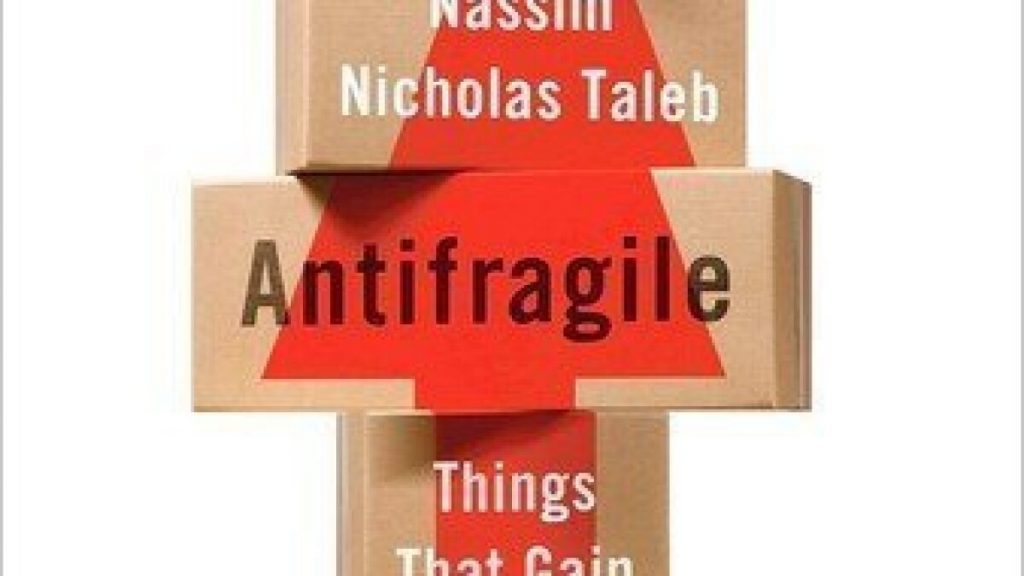Anti-fragile


What is Anti-fragile?
Anti-fragility refers to a class of things that not only benefit from chaos, but may even require it in order to survive and thrive. Nassim Nicholas Taleb, a professor and former trader and hedge fund manager, developed the notion and coined the term “anti-fragility” because he considered existing phrases for the opposite of “fragility,” such as “robustness,” were inappropriate.
Understanding Anti-fragile
Anti-fragility goes beyond robustness; it indicates that something not only withstands but also improves as a result of a shock. Taleb provided the following definition in his 2012 book, Anti-fragile: Things That Benefit from Disorder:
“Some things thrive and grow when exposed to volatility, randomness, disorder, and pressures, and they enjoy adventure, risk, and uncertainty. Despite the prevalence of the occurrence, there is no word for the polar opposite of fragile. Let us refer to it as anti-fragile. Anti-fragility is more than just resilience or robustness. The resilient resists shocks and remains constant; the anti-fragile improves.”
The basic thesis of the book is that we must learn how to make our public and private life (policies, social policies, economics, etc.) anti-fragile, rather than simply less exposed to randomness and chaos. We can benefit or take advantage of stress, errors, and change by positioning for nonlinear events, which are all but certain.
“We have been fragilizing the economy, our health, political life, education, nearly everything,” according to Taleb, by “suppressing randomness and volatility,” in the same manner that “systematically preventing forest fires from occurring ‘to be safe’ makes the big one much worse.”
The notion of anti-fragility can be used to a wide range of subjects, including physics, molecular biology, transportation planning, physical fitness, engineering, project management, computer science, and risk analysis (Taleb’s area of expertise).
Read related articles:
« Back to Glossary IndexDisclaimer
In line with the Trust Project guidelines, please note that the information provided on this page is not intended to be and should not be interpreted as legal, tax, investment, financial, or any other form of advice. It is important to only invest what you can afford to lose and to seek independent financial advice if you have any doubts. For further information, we suggest referring to the terms and conditions as well as the help and support pages provided by the issuer or advertiser. MetaversePost is committed to accurate, unbiased reporting, but market conditions are subject to change without notice.
About The Author
Damir is the team leader, product manager, and editor at Metaverse Post, covering topics such as AI/ML, AGI, LLMs, Metaverse, and Web3-related fields. His articles attract a massive audience of over a million users every month. He appears to be an expert with 10 years of experience in SEO and digital marketing. Damir has been mentioned in Mashable, Wired, Cointelegraph, The New Yorker, Inside.com, Entrepreneur, BeInCrypto, and other publications. He travels between the UAE, Turkey, Russia, and the CIS as a digital nomad. Damir earned a bachelor's degree in physics, which he believes has given him the critical thinking skills needed to be successful in the ever-changing landscape of the internet.
More articles

Damir is the team leader, product manager, and editor at Metaverse Post, covering topics such as AI/ML, AGI, LLMs, Metaverse, and Web3-related fields. His articles attract a massive audience of over a million users every month. He appears to be an expert with 10 years of experience in SEO and digital marketing. Damir has been mentioned in Mashable, Wired, Cointelegraph, The New Yorker, Inside.com, Entrepreneur, BeInCrypto, and other publications. He travels between the UAE, Turkey, Russia, and the CIS as a digital nomad. Damir earned a bachelor's degree in physics, which he believes has given him the critical thinking skills needed to be successful in the ever-changing landscape of the internet.






















































